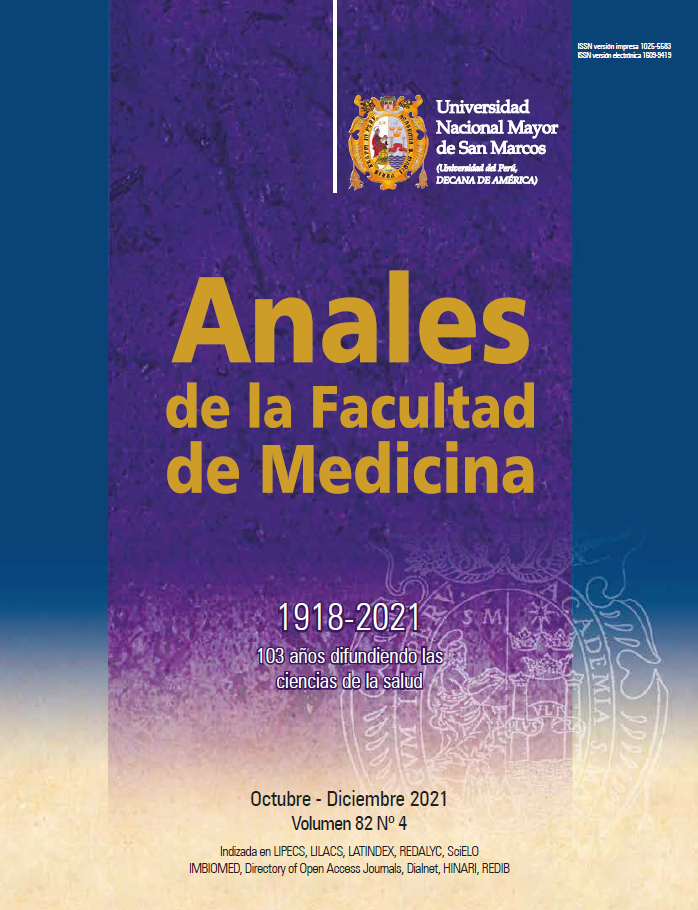Daytime sleepiness and sleep quality in school performance of adolescents from a state educational institution
DOI:
https://doi.org/10.15381/anales.v82i4.20409Keywords:
Disorders of Excessive Somnolence, Sleep Initiation and Maintenance Disorders, Academic Performance, Adolescent, PeruAbstract
Objective. To determine the association between daytime sleepiness and sleep quality with school performance in adolescents of the Institution Educative “Emblemática” Ventura Ccalamaqui, Barranca, 2018. Methods: Non-experimental and cross-sectional study. The sample included 217 adolescents of third and fourth year of secondary school. The Epworth Sleepiness Scale and the Pittsburgh Sleep Quality Index were applied. School performance was determined by the grade in communication and mathematics (subjects used by the international community) and was classified according to the National Curriculum (AD, A, B, C). Results. The average age of the adolescents was 15.9 ± 0.6 years, where 51.2% were female, 51.6% consumed coffee, tea and / or soft drinks less than once a week. It was observed that 49.7% suffered from daytime sleepiness, 84.8% had sleep problems and 52.1% presented an expected performance. Daytime sleepiness was significantly associated with school performance (p=0.004); students with daytime sleepiness presented expected and in-process school performance, students without daytime sleepiness presented outstanding, expected and ongoing school performance. The quality of sleep of adolescents was significantly associated with their school performance (p=0.045) and daytime sleepiness (p=0.015). Conclusions: Daytime sleepiness and sleep quality were associated with school performance, in adolescents of the Institution Educative “Emblemática” Ventura Ccalamaqui, Barranca, 2018.
Downloads
Published
Issue
Section
License
Copyright (c) 2022 Anales de la Facultad de Medicina

This work is licensed under a Creative Commons Attribution-NonCommercial-ShareAlike 4.0 International License.
Those authors who have publications with this magazine accept the following terms:
- Authors will retain their copyrights and guarantee the journal the right of first publication of their work, which will be simultaneously subject to Creative Commons Attribution License that allows third parties to share the work as long as its author and its first publication this magazine are indicated.
- Authors may adopt other non-exclusive licensing agreements for the distribution of the version of the published work (eg, deposit it in an institutional electronic file or publish it in a monographic volume) provided that the initial publication in this magazine is indicated.
- Authors are allowed and recommended to disseminate their work over the Internet (eg: in institutional telematic archives or on their website) before and during the submission process, which It can produce interesting exchanges and increase quotes from the published work. (See El efecto del acceso abierto ).



